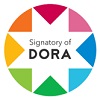Eficacia antimicrobiana del quitosano frente a microrganismos asociados con dispositivos ortodónticos: Estudio in vitro
Resumen
Los dispositivos ortodónticos fijos aumentan la acumulación de placa dental y favorecen el desarrollo de microorganismos patógenos como Streptococcus mutans y Candida albicans, causantes de lesiones de mancha blanca (LMB). El quitosano, un agente antimicrobiano, ha demostrado efectividad antimicrobiana contra estos microorganismos, llegando a prevenir las LMB asociadas a los tratamientos de ortodoncia. Este estudio evaluó la eficacia antimicrobiana del quitosano frente a microorganismos presentes en el entorno oral durante tratamientos ortodónticos. Se evaluó mediante ensayos microbiológicos dos cepas de S. mutans ATCC 25175 y C. albicans ATCC 90028 en diversas concentraciones de quitosano entre (0,25%-15%). Se prepararon discos con estas soluciones y se inocularon en placas de cultivo incubándolas a 37°C durante 48 horas. Los halos de inhibición se midieron con un calibrador digital. Las muestras de quitosano de alto peso molecular (10% a 15%) fueron efectivas contra S. mutans ATCC 25175, pero no contra C. albicans ATCC 90028.
Descargas
Citas
García, L. G. S., Rocha, M. G. da, Freire, R. S., Nunes, P. I. G., Nunes, J. V. S., Fernandes, M. R., Pereira-Neto, W. A., Sidrim, J. J. C., Santos, F. A., Rocha, M. F. G., Rodrigues, L. K. A., Vieira, R. S., & Brilhante, R. S. N. (2023). Chitosan microparticles loaded with essential oils inhibit duo-biofilms of Candida albicans and Streptococcus mutans. Journal of Applied Oral Science, 31. https://doi.org/10.1590/1678-7757-2023-0146
Haniastuti, T., Puspasari, T. A., Hakim, E. R., & Tandelilin, R. T. C. (2023). Potential effect of giant freshwater prawn shell nano chitosan in inhibiting the development of Streptococcus mutans and Streptococcus sanguinis biofilm in vitro. International Journal of Dentistry. https://doi.org/10.1155/2023/8890750
Kachoei, M., Divband, B., Rahbar, M., Esmaeilzadeh, M., Ghanizadeh, M., & Alam, M. (2021). A novel developed bioactive composite resin containing silver/zinc oxide (Ag/ZnO) nanoparticles as an antimicrobial material against Streptococcus mutans, Lactobacillus, and Candida albicans. Evidence-Based Complementary and Alternative Medicine. https://doi.org/10.1155/2021/4743411
Kawakita, E. R. H., Ré, A. C. S., Peixoto, M. P. G., Ferreira, M. P., Ricomini-Filho, A. P., Freitas, O., & Aires, C. P. (2019). Effect of chitosan dispersion and microparticles on older Streptococcus mutans biofilms. Molecules, 24(9). https://doi.org/10.3390/molecules24091808
Khan, S. H., Younus, H., Allemailem, K. S., Almatroudi, A., Alrumaihi, F., Alruwetei, A. M., Alsahli, M. A., Khan, A., & Khan, M. A. (2020). Potential of methylglyoxal-conjugated chitosan nanoparticles in treatment of fluconazole-resistant Candida albicans infection in a murine model. International Journal of Nanomedicine, 15, 3681-3693. https://doi.org/10.2147/IJN.S249625
Khorasgani, M. R., Aliasghari, A., Vaezifar, S., Rahimi, F., Younesi, H., & Khoroushi, M. (n.d.). Evaluation of antibacterial efficiency of chitosan and chitosan nanoparticles on cariogenic streptococci: An in vitro study. Iranian Journal of Microbiology. http://ijm.tums.ac.ir
Klaus, K., Eichenauer, J., Sprenger, R., & Ruf, S. (2016). Oral microbiota carriage in patients with multibracket appliance in relation to the quality of oral hygiene. Head and Face Medicine, 12(1). https://doi.org/10.1186/s13005-016-0125-x
Lara, H. H., Guisbiers, G., Mendoza, J., Mimun, L. C., Vincent, B. A., Lopez-Ribot, J. L., & Nash, K. L. (2018). Synergistic antifungal effect of chitosan-stabilized selenium nanoparticles synthesized by pulsed laser ablation in liquids against Candida albicans biofilms. International Journal of Nanomedicine, 13, 2697–2708. https://doi.org/10.2147/IJN.S151285
Lo, W. H., Deng, F. S., Chang, C. J., & Lin, C. H. (2020). Synergistic antifungal activity of chitosan with fluconazole against Candida albicans, Candida tropicalis, and fluconazole-resistant strains. Molecules, 25(21). https://doi.org/10.3390/molecules25215114
Nafarrate-Valdez, R. A., Martínez-Martínez, R. E., Zaragoza-Contreras, E. A., Áyala-Herrera, J. L., Domínguez-Pérez, R. A., Reyes-López, S. Y., Donohue-Cornejo, A., Cuevas-González, J. C., Loyola-Rodríguez, J. P., y Espinosa-Cristóbal, L. F. (2022). Anti-adherence and antimicrobial activities of silver nanoparticles against serotypes C and K of Streptococcus mutans on orthodontic appliances. Medicina (Lithuania), 58(7). https://doi.org/10.3390/medicina58070877
Narmada, I., Cynthia, A., & Triwardhani, A. (2019). A comparison of antibacterial inhibitory effect on Streptococcus mutans and tensile strength between chitosan-based bonding adhesives and commercial products. Indian Journal of Dental Research, 30(4). https://doi.org/10.4103/ijdr.IJDR_236_18
Nemati Shizari, L., Mohammadpour Dounighi, N., Bayat, M., & Mosavari, N. (2021). A new amphotericin B-loaded trimethyl chitosan nanoparticles as a drug delivery system and antifungal activity on Candida albicans biofilm. Archives of Razi Institute, 76(3), 571-586. https://doi.org/10.22092/ARI.2020.342702.1477
Peña, A., Sánchez, N. S., & Calahorra, M. (2013). Effects of chitosan on Candida albicans: Conditions for its antifungal activity. BioMed Research International, 2013. https://doi.org/10.1155/2013/527549
Salmerón-Valdés, E. N., Lara-Carrillo, E., Medina-Solís, C. E., Robles-Bermeo, N. L., Scougall-Vilchis, R. J., Casanova-Rosado, J. F., Pontigo-Loyola, A. P., y Fernández Barrera, M. Á. (2016). Tooth demineralization and associated factors in patients on fixed orthodontic treatment. Scientific Reports, 6. https://doi.org/10.1038/srep36383
Thienngern, P., Panichuttra, A., Ratisoontorn, C., Aumnate, C., & Matangkasombut, O. (2022). Efficacy of chitosan paste as intracanal medication against Enterococcus faecalis and Candida albicans biofilm compared with calcium hydroxide in an in vitro root canal infection model. BMC Oral Health, 22(1). https://doi.org/10.1186/s12903-022-02385-x
Valm, A. M. (2019). The structure of dental plaque microbial communities in the transition from health to dental caries and periodontal disease. Journal of Molecular Biology, 431(16), 2957-2969. https://doi.org/10.1016/j.jmb.2019.05.016
Wang, W., Meng, Q., Li, Q., Liu, J., Zhou, M., Jin, Z., & Zhao, K. (2020). Chitosan derivatives and their application in biomedicine. International Journal of Molecular Sciences, 21(2). https://doi.org/10.3390/ijms21020487
Wang, X., Song, R., Johnson, M., Sigen, A., Shen, P., Zhang, N., Lara-Sáez, I., Xu, Q., & Wang, W. (2023). Chitosan-based hydrogels for infected wound treatment. Macromolecular Bioscience, 23(9). https://doi.org/10.1002/mabi.202300094
Yang, H., Ma, Y., Xie, X., Wang, H., Li, X., Fang, D., & Bai, Y. (2023). Candida albicans enriched in orthodontic derived white spot lesions and shaped focal supragingival bacteriome. Frontiers in Microbiology, 14. https://doi.org/10.3389/fmicb.2023.1084850
Yilmaz, M. A., Yildiz, P. K., Gokkaya, B., Bilsel, S. O., & Kargul, B. (2022). The effect of novel toothpaste in children with white spot lesions. Journal of the Pakistan Medical Association, 72(11). https://doi.org/10.47391/JPMA.2409
Zakrzewski, W., Dobrzynski, M., Dobrzynski, W., Zawadzka-Knefel, A., Janecki, M., Kurek, K., Lubojanski, A., Szymonowicz, M., Rybak, Z., & Wiglusz, R. J. (2021). Nanomaterials application in orthodontics. Nanomaterials, 11(2), 1-19. https://doi.org/10.3390/nano11020337
Derechos de autor 2025 Patricio Eugenio Cabrera-Padrón, Jessica María Sarmiento-Ordoñez, Edisson Mauricio Pacheco-Quito

Esta obra está bajo licencia internacional Creative Commons Reconocimiento-NoComercial-CompartirIgual 4.0.
CC BY-NC-SA : Esta licencia permite a los reutilizadores distribuir, remezclar, adaptar y construir sobre el material en cualquier medio o formato solo con fines no comerciales, y solo siempre y cuando se dé la atribución al creador. Si remezcla, adapta o construye sobre el material, debe licenciar el material modificado bajo términos idénticos.
OAI-PMH URL: https://cienciamatriarevista.org.ve/index.php/cm/oai














